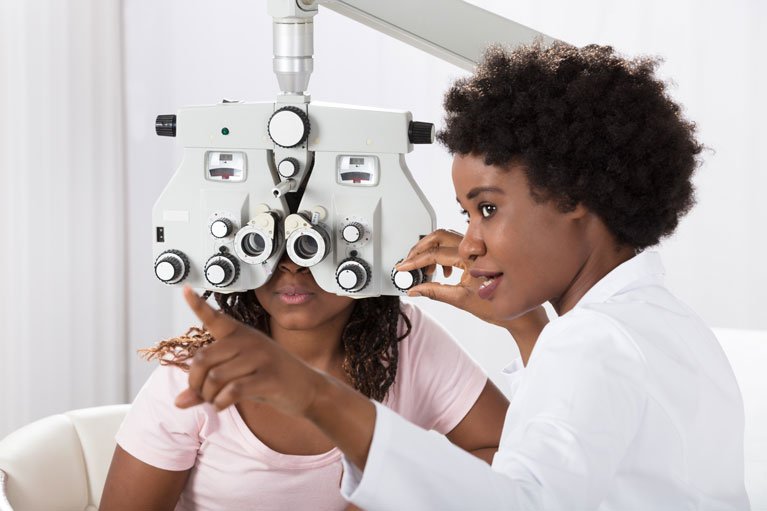What Do You Call a Person Who Checks Eye Problems?

On their visits to their vision offices of choice, patients will hear a variety of eye care professional titles like “optician,” “ophthalmologist,” and “optometrist.” All of these words that begin with “op” can get confusing and without further ado, the official title of someone professionally qualified to check eye problems is—(drumroll, please)—ophthalmologist. This specialized professional is a medical or osteopathic doctor who treats vision care. Read on to find out the duties of an ophthalmologist as well as those of optometrist and optician—and the differences of each.
What is an Ophthalmologist?
Of these three professional titles, the role of ophthalmologist requires longer and more training intensive than that of an optician and optometrist. Someone studying to be an ophthalmologist typically spends 12 to 14 years in medical school, and ultimately he or she earns a license to practice surgery. An ophthalmologist is qualified to diagnose and treat a range of more complex eye-related conditions than either an optician or optometrist is permitted. Procedures conducted by an ophthalmologist include diagnosing sight issues, eye surgery, and prescribing eyeglasses and contact lenses.
What is an Optometrist?
Whereas an ophthalmologist spends over 10 years in study, anyone who is considering a career as an optometrist will need to complete between two and four years of college, followed by an additional four years of optometry school. It should be noted that an optometrist is not a medical doctor. The responsibilities of an optometrist is to conduct eye exams, vision tests, and the prescription and dispensation of corrective lenses. Any additional tasks that may be practiced depend on the state where the optometrist is licensed. Quite often, an ophthalmologist and optometrist work together.
What is an Optician?
Someone who is a technician in eyewear is an optician. (Note the same last few letters: “cian.”) Someone who aspires to be an optician will be trained to design and fit the lenses in eyeglasses and frames as well as contact lenses. These professionals create eyewear according to prescriptions they receive from—you guessed it—an ophthalmologist or optometrist.
So, all three professionals—ophthalmologist, optometrist, and optician—play important roles in helping diagnose, maintain, and strengthen people’s eyesight. We hope that this blog has answered your questions as how to know the difference of each of the three practitioners. Looking for a SightMD-affiliated ophthalmologist, optometrist, or optician near you? We certainly have got you covered! Reach out today to your local SightMD Office to schedule your appointment!


